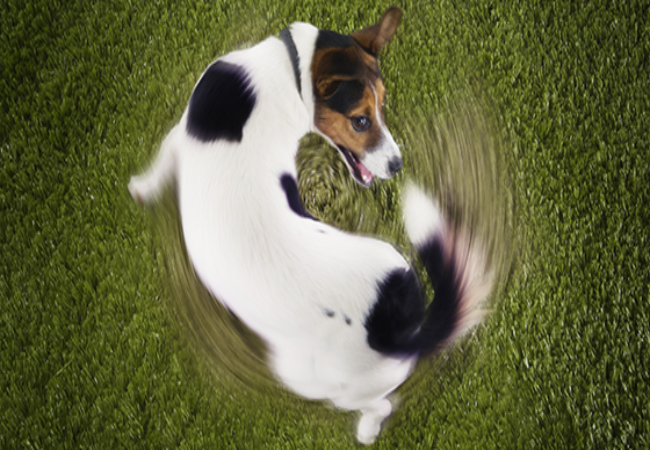Canine Compulsive Disorder in Dogs: Vet-Approved Guide 2025 🐶🐾

In this article
Canine Compulsive Disorder in Dogs: Vet-Approved Guide 2025 🐶🐾
By Dr. Duncan Houston BVSc
Dogs, much like humans, can develop behavioral disorders that impact their quality of life. One such condition is Canine Compulsive Disorder (CCD), characterized by repetitive, exaggerated behaviors that seem purposeless. Recognizing and addressing CCD is crucial for ensuring your dog's well-being. 🛡️
🔍 What is Canine Compulsive Disorder?
Canine Compulsive Disorder manifests as repetitive actions that are excessive and performed out of context. These behaviors often interfere with normal activities and can escalate over time.
🐶 Common Compulsive Behaviors in Dogs
- Tail chasing or spinning
- Excessive licking or chewing
- Fly snapping (biting at imaginary flies)
- Staring at walls or into space
- Light or shadow chasing
- Persistent barking without a clear trigger
- Sucking on toys or body parts
These behaviors may start as normal actions but become compulsive when they are performed excessively and disrupt daily life.
🧬 Causes of CCD in Dogs
Several factors can contribute to the development of CCD:
1. Stress and Anxiety
Dogs experiencing stress or anxiety may develop compulsive behaviors as coping mechanisms. Triggers can include changes in the environment, a lack of social interaction, or separation from owners.
2. Genetic Predisposition
Certain breeds, such as Bull Terriers and German Shepherds, are more prone to developing CCD, suggesting a genetic component.
3. Medical Conditions
Underlying medical issues, including neurological disorders or skin conditions, can lead to behaviors that mimic or contribute to CCD. It's essential to rule out medical causes before diagnosing CCD.
🩺 Diagnosing CCD
Diagnosis involves a thorough evaluation by a veterinarian, including:
- Medical History: Reviewing the dog's behavior patterns and any changes in environment or routine.
- Physical Examination: Checking for medical conditions that could cause similar behaviors.
- Behavioral Assessment: Observing the frequency, duration, and context of the behaviors.
Accurate diagnosis is crucial for effective treatment planning.
🛠️ Treatment Strategies for CCD
1. Behavioral Modification
Implementing structured routines and positive reinforcement can help redirect compulsive behaviors. Techniques include:
- Desensitization: Gradually exposing the dog to stressors in a controlled manner.
- Counter-Conditioning: Associating the stressor with positive experiences.
Consistency and patience are key to success.
2. Environmental Enrichment
Providing mental and physical stimulation can reduce boredom and stress. Options include:
- Interactive toys and puzzles
- Regular exercise and playtime
- Training sessions to engage the mind
Enrichment helps fulfill your dog's natural instincts and reduces the likelihood of compulsive behaviors.
3. Medication
In some cases, veterinarians may prescribe medications to manage CCD, such as:
- Selective Serotonin Reuptake Inhibitors (SSRIs): Fluoxetine (Prozac®) can help regulate mood and reduce compulsive behaviors.
- Tricyclic Antidepressants (TCAs): Clomipramine (Clomicalm®) is FDA-approved for treating separation anxiety and may be used off-label for CCD.
Medication should be used in conjunction with behavioral therapies and under veterinary supervision.
📱 Enhance Your Dog's Well-being with These Tools
Consider leveraging these resources to support your dog's health and behavior:
- Ask A Vet: Access 24/7 veterinary advice for any concerns regarding your dog's health. 🩺
🎯 Final Thoughts
Canine Compulsive Disorder is a serious condition that requires attention and care. By understanding the causes and implementing appropriate treatment strategies, you can help your dog lead a happier, healthier life. 🐾
For personalized advice and support, download the Ask A Vet app today. 📲🐶






